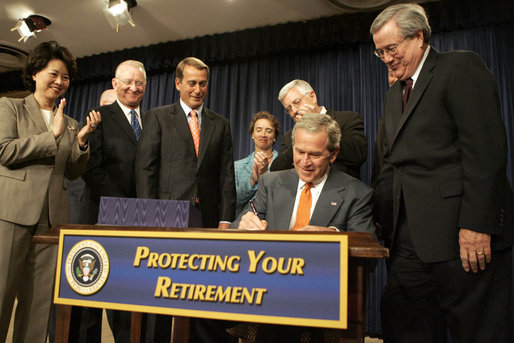|
Bank-owned Life Insurance
Corporate-owned life insurance (COLI), is life insurance on employees' lives that is owned by the employer, with benefits payable either to the employer or directly to the employee's families. Other names for the practice include janitor's insurance and dead peasants insurance. When the employer is a bank, the insurance is known as a bank owned life insurance (BOLI). COLI was originally purchased on the lives of key employees and executives by a company to hedge against the financial cost of losing key employees to unexpected death, the risk of recruiting and training replacements of necessary or highly trained personnel, or to fund corporate obligations to redeem stock upon the death of an owner. This use is commonly known as "key man" or "key person" insurance. Although this article refers only to practice and policy in the United States, key person insurance is used in other countries as well. Primarily in the 1990s, some companies aggressively insured a broad base of employee ... [...More Info...] [...Related Items...] OR: [Wikipedia] [Google] [Baidu] |
Life Insurance
Life insurance (or life assurance, especially in the Commonwealth of Nations) is a contract between an insurance policy holder and an insurer or assurer, where the insurer promises to pay a designated beneficiary a sum of money upon the death of an insured person (often the policyholder). Depending on the contract, other events such as terminal illness or critical illness can also trigger payment. The policyholder typically pays a premium, either regularly or as one lump sum. The benefits may include other expenses, such as funeral expenses. Life policies are legal contracts and the terms of each contract describe the limitations of the insured events. Often, specific exclusions written into the contract limit the liability of the insurer; common examples include claims relating to suicide, fraud, war, riot, and civil commotion. Difficulties may arise where an event is not clearly defined, for example, the insured knowingly incurred a risk by consenting to an experimental m ... [...More Info...] [...Related Items...] OR: [Wikipedia] [Google] [Baidu] |
Arbitrage
In economics and finance, arbitrage (, ) is the practice of taking advantage of a difference in prices in two or more markets; striking a combination of matching deals to capitalise on the difference, the profit being the difference between the market prices at which the unit is traded. When used by academics, an arbitrage is a transaction that involves no negative cash flow at any probabilistic or temporal state and a positive cash flow in at least one state; in simple terms, it is the possibility of a risk-free profit after transaction costs. For example, an arbitrage opportunity is present when there is the possibility to instantaneously buy something for a low price and sell it for a higher price. In principle and in academic use, an arbitrage is risk-free; in common use, as in statistical arbitrage, it may refer to ''expected'' profit, though losses may occur, and in practice, there are always risks in arbitrage, some minor (such as fluctuation of prices decreasing profit ... [...More Info...] [...Related Items...] OR: [Wikipedia] [Google] [Baidu] |
Pension Protection Act Of 2006
The Pension Protection Act of 2006 (), 120 Stat. 780, was signed into law by U.S. President George W. Bush on August 17, 2006. Pension reform This legislation requires companies who have underfunded their pension plans to pay higher premiums to the Pension Benefit Guaranty Corporation (PBGC) and extends the requirement of providing extra funding to the pension systems of companies that terminate their pension plans. It also requires companies to analyze their pension plans' obligations more accurately, closes loopholes that previously allowed some companies to underfund their plans by skipping payments, and raises the cap on the amount employers are allowed to invest in their own plans. This will allow employers to deduct more money using the pension tax shield in times of high profits. It requires actuaries to use the equivalent of the projected accrued benefit cost method for determining annual normal cost. Other elements: * Provides statutory authority for employers to enroll ... [...More Info...] [...Related Items...] OR: [Wikipedia] [Google] [Baidu] |
Tax Deferral
Tax deferral refers to instances where a taxpayer can delay paying taxes to some future period. In theory, the net taxes paid should be the same. Taxes can sometimes be deferred indefinitely, or may be taxed at a lower rate in the future, particularly for deferral of income taxes. Corporate tax deferral Corporations (or other enterprises) may often be allowed to defer taxes, for example, by using accelerated depreciation. Profit taxes (or other taxes) are reduced in the current period by either lowering declared revenue now, or by increasing expenses. In principle, taxes in future periods should be higher. Income tax deferral In many jurisdictions, income taxes may be deferred to future periods by a number of means. For example, income may be recognized in future years by using income tax deductions, or certain expenses may be provided as deductions in current rather than future periods. A 2010 study documents the large extent to which U.S. taxpayers accelerate their deductible sta ... [...More Info...] [...Related Items...] OR: [Wikipedia] [Google] [Baidu] |

